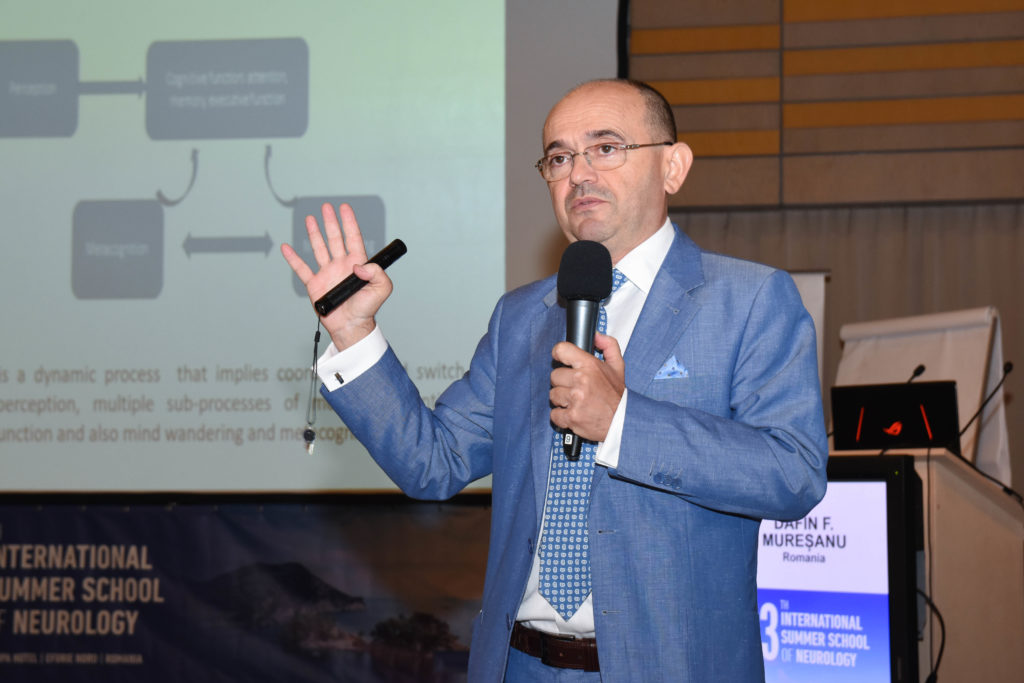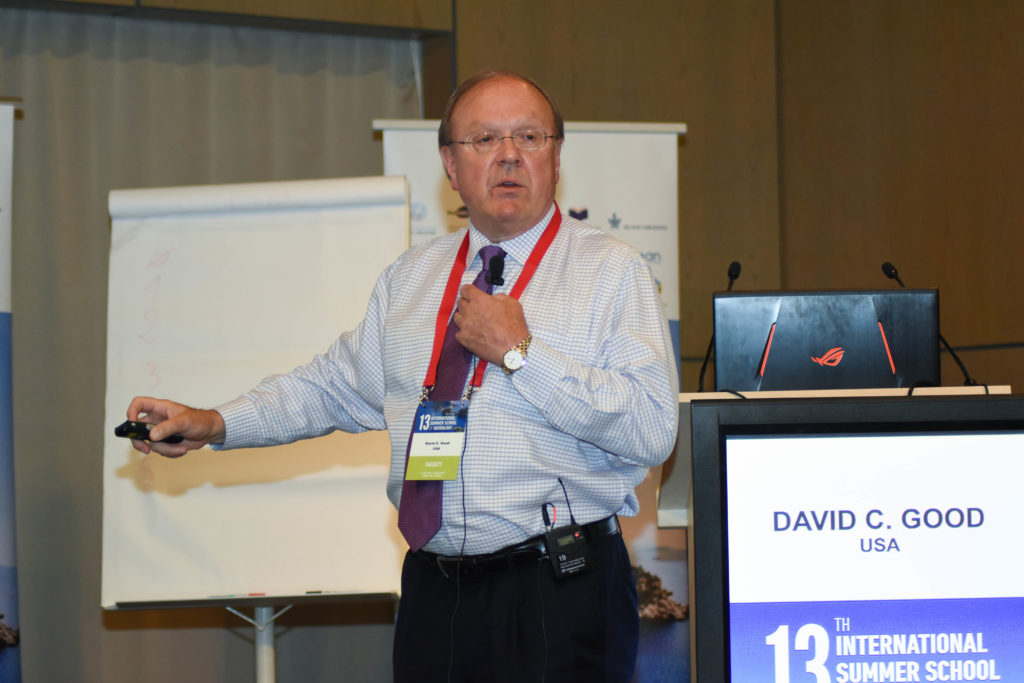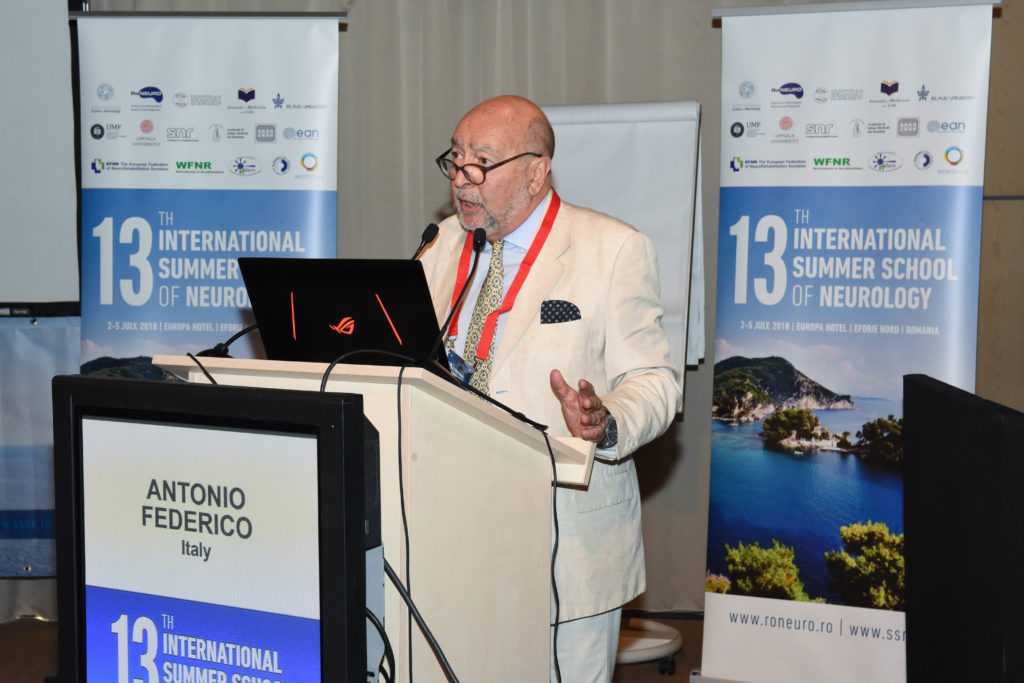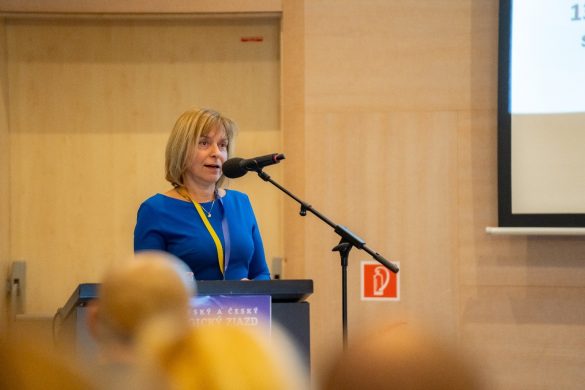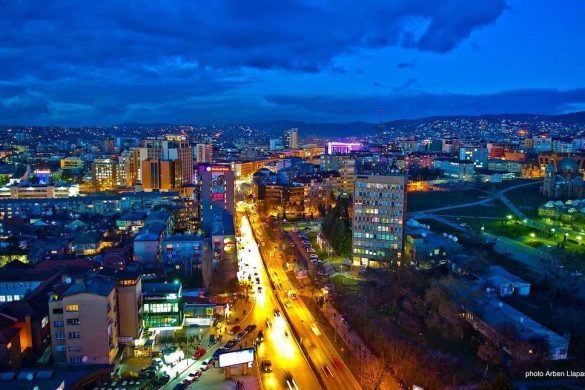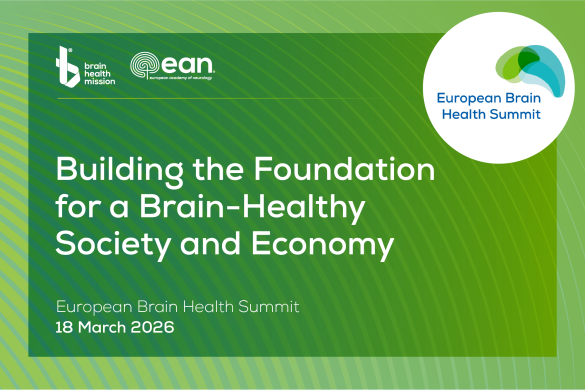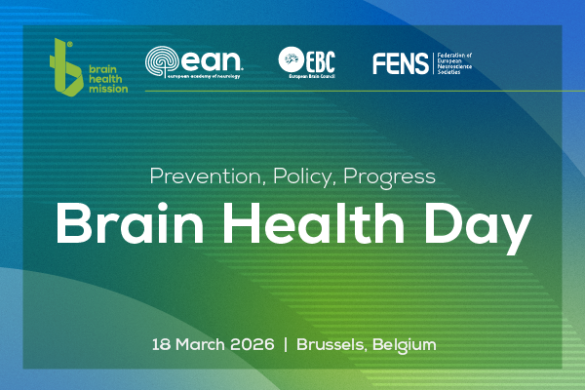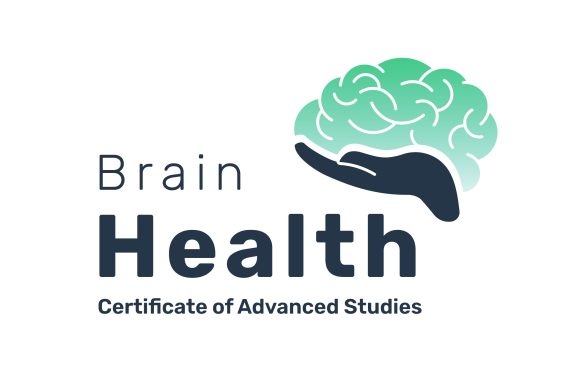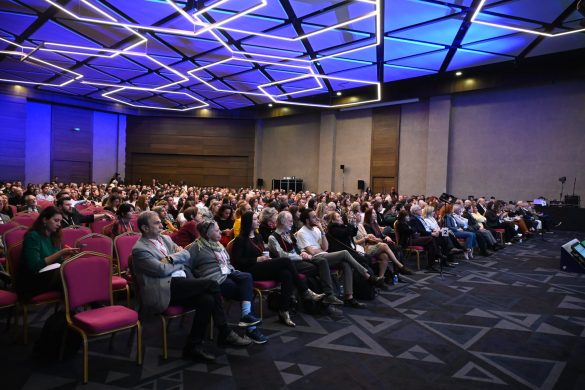2-5 JULY 2018, EFORIE NORD, ROMANIA
As it is tradition, the 2018 edition of the International Summer School of Neurology was held in the resort on the Black Sea coast, Eforie Nord, Romania.
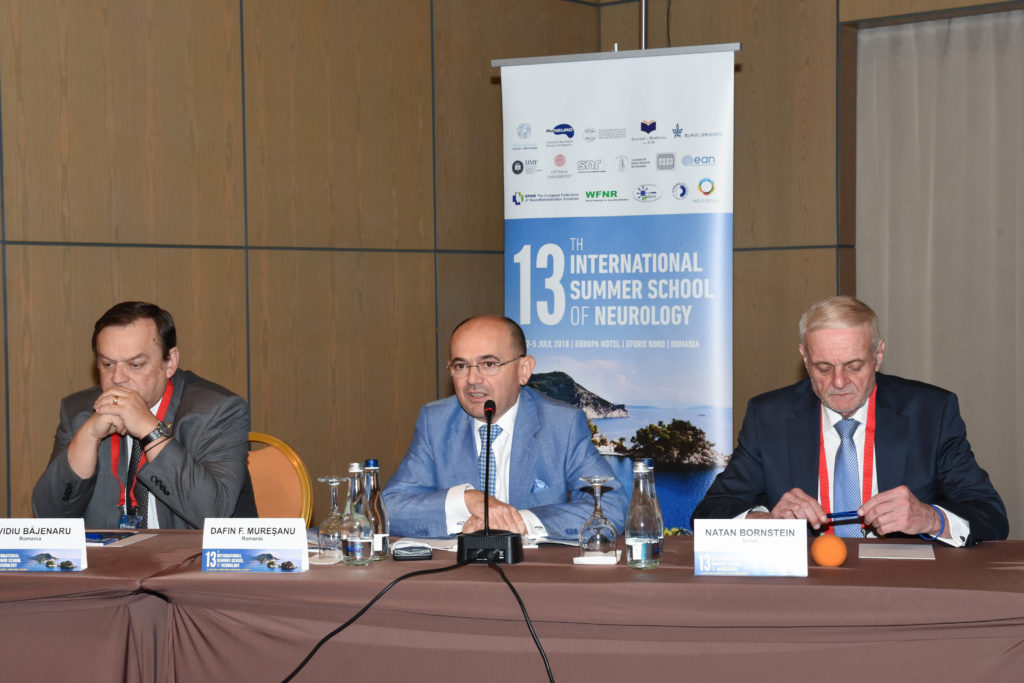
From left to right: Prof. dr. Ovidiu Bajenaru (Romania) – Past President of the Romanian Society of Neurology, Chairman and Head of Dept. Neurology – University Emergency Hospital, Bucharest, Romania Prof. dr. Dafin F. Muresanu (Romania) – President of the European Federation of NeuroRehabilitation Societies (EFNR), Chair of EAN Communication Committee and Co-Chair of EAN SP Neurorehabilitation Prof. dr. Natan Bornstein (Israel) – Vice President of the World Stroke Organization (WSO), Chairman of the Israeli Neurological Association, Co-Chair EAN SP Stroke
The event was organized by the Foundation of the Society for the Study of Neuroprotection and Neuroplasticity, RoNeuro Institute for Neurological Research and Diagnostics and the Romanian Society of Neurology, in collaboration with a number of national and international universities and scientific societies. It has been endorsed by the EAN, the World Neurorehabilitation Federation (WFNR) and the European Federation of Neurorehabilitation Societies (EFNRS).
More than 150 young neurologists and clinicians from eight countries participated in this 4-day course in which 26 international speakers from the Academia (clinicians and neuroscientists in the field) presented their work. The conference included the discussion of 49 papers that have addressed topics of interest in neurological pathology such as stroke, neurorehabilitation, peripheral neuropathies, multiple sclerosis (MS), and Parkinson’s disease (PD). As always, the event provided the opportunity for young specialists to interact with experts around the world in an informal and warm environment.
In the opening ceremony, Dafin F. Muresanu (Romania), Valeria Caso (Italy), Natan Bornstein (Israel), Ovidiu Bajenaru (Romania), Volker Homberg (Germany), Hari Shanker Sharma (Sweden) and Stanislav Groppa (Rep. Moldova) addressed a warm welcome to the participants.
The first day of the meeting comprised three scientific sessions. The first module was coordinated by Hari Shanker Sharma (Sweden), Volker Homberg (Germany) and Derek Mayer (USA). This session discussed topics such as the correlated processes in neurobiology – possible consequences for neurorehabilitation strategies (Dafin F. Muresanu), the art of neurological examination (Volker Homberg) and predicting clinical outcomes after stroke by David Good (USA), President-Elect of WFNR. In the second session, Augustin Semenescu presented two very important inventions, the cranial implant with osteointegrating structures and functional coatings and cranial endoprosthesis with a sliding system, and Hari Shanker Sharma discussed the nanodelivery of neurotrophic factors with 5-HT6 receptor antagonist following concussive head injury. The third session brought the concept of high quality, non-interventional comparative effectiveness in neurorehabilitation – new pathways within the framework of evidence-based medicine (Johannes Vester) and neurological case presentations (Volker Hömberg and Dana Boering, Germany).
On the second day, the module coordinators were Natan Bornstein and Dafin F. Muresanu. The session was dedicated to stroke. Natan Bornstein drew attention to the need to treat transient ischemic stroke as a neurological emergency and presented updates on atrial and secondary stroke prevention. He also discussed the management of symptomatic carotid stenosis. Further, Dafin F. Muresanu approached aspects regarding the challenges and opportunities in stroke recovery and the road from neurobiology to evidence-based medicine concepts in neurorehabilitation after stroke. The session was concluded with presentations of clinical cases made by Natan Bornstein and Adina Stan (Romania).
The third day was coordinated by Bogdan Popescu (Romania) and Antonio Federico (Italy), who presented the genetic leucodystrophies as a model of oligodendrocyte dysfunction. The second lecture brought into discussion the transient loss of consciousness as a differential diagnostic challenge (Max Hilz, Germany). The first session ended with Ovidiu Bajenaru’s talk about pathophysiology and classification update on vascular cognitive impairment and immunopathological considerations in relation to disease modifying therapies in MS. The second session included topics such as updates on advanced Parkinson disease treatment (Angelo Antonini, Italy), multimodal drugs for a multimodal disease (Peter Jenner, UK), a clinical oriented overview on characteristics and predictive biomarkers of drug resistant epilepsy (Stanislav Groppa), diabetic neuropathy diagnosis (Tudor Lupescu, Romania) and the treatment of diabetic neuropathy and the prevention of diabetic foot (Raluca Popescu, Romania). The last session of the third day brought forward topics like mild cognitive impairments (Amos Korczyn, Israel), dysautonomia in PD (Cristian Falup Pecurariu, Romania) and the management of advanced PD (Jozsef Szasz, Romania). Moreover, Amos Korczyn (Israel) presented several case presentations.
The last day was coordinated by Michael Brainin (Austria) and Ovidiu Băjenaru. The first session comprised various topics regarding brain and non-brain stimulation therapy for neurological disorders (Josep Valls-Sole, Spain), microbiota, enteric nervous system and neurodegenerative diseases (Bogadan Popescu), key elements of stroke care and how the prevention of stroke is the main issue (Michael Brainin). The last session covered the multidisciplinary approach in advanced PD (Mihaela Simu, Romania), ResQ registry of stroke care (Cristina Tiu, Romania) and the use of serological biomarkers in MS treatment: a step toward personalized treatment (Rodica Balasa, Romania).
For further details about the educational program, please follow this link.

